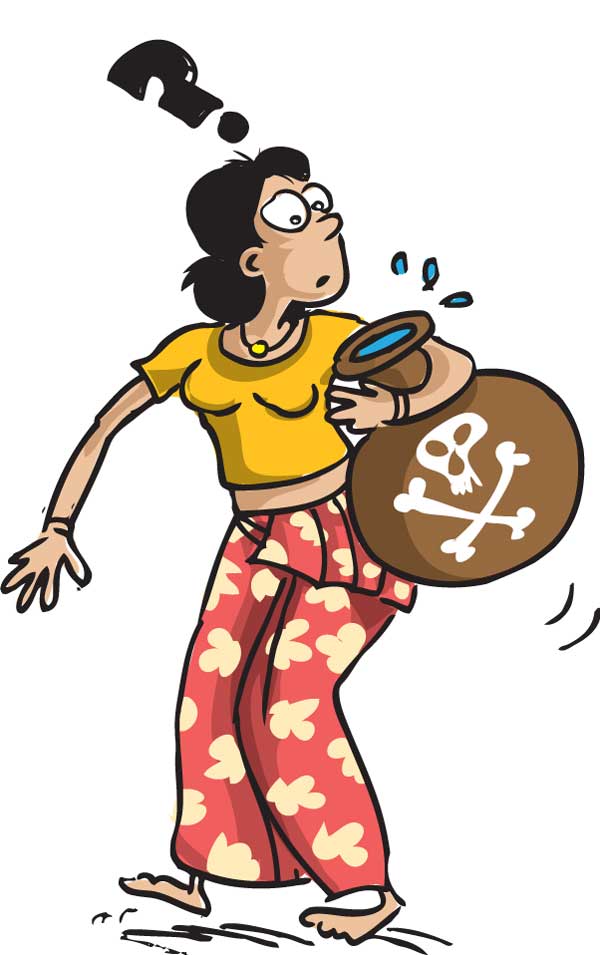Reply To:
Name - Reply Comment

The battle against the chronic kidney disease is to be intensified with President Maithripala Sirisena promising that 40% of Sri Lanka’s people who do not have access to clean drinking water would be provided this essential need within two years. Another important factor is the campaign to persuade farmers to switch from imported, expensive and sometimes toxic agro-chemicals to organic varieties such as cow-dung fertilizer. Many soil scientists believe that during the past few decades the ground water also has been polluted because of the excessive use of some of these agro-chemicals.
People’s rights activist Ranjith Seneviratne, a former expert of the United Nations Food and Agriculture Organization (FAO), has informed us of new hope that an American medical specialist has given to kidney victims, even if doctors have told us there is nothing much they could do.
Mainstream medicine does not have a cure for CKD. What it has is a lot of drugs to treat the symptoms. And most of the drugs will leave us worse off than before we started taking them.
But there is hope. It’s called intravenous laser blood therapy or IV laser treatment. And it is known to slow the progress of CKD.
So why have we not heard of those from our doctor? Because big pharma has a vice-like grip on the “disease industry” in most countries. And if a treatment does not boost its bottom line it wants to act like it doesn’t exist, the medical specialist says.
IV blood lasers were first used in the old Soviet Union more than 25 years ago. But do not get them confused with surgical lasers used to cut, cauterize and burn out diseased tissues. We are talking about “soft lasers.” They operate at lower power. Instead of destroying tissues, they repair them. Soft lasers activate the immune system. They boost white blood cells and other immune system cells. The low level light of the IV laser increases blood flow and reduces inflammation.
CKD often leads to inflammation. Over time the kidney tissue thickens. It scars. The kidneys stop working. They start to atrophy. But IV laser therapy reduces inflammation. It can also help reverse tissue damage and scarring, the specialist says.
Studies show IV lasers improve kidney function in patients with CKD. The patients can also tolerate their medications better. Studies also show that patients with life-threatening kidney infections can also reduce inflammation with IV lasers.
IV laser treatment is also offering new hope for patients with liver disease. In a Russian study, 175 patients with chronic liver diseases were given IV laser treatments. Some of them had hepatitis and cirrhosis. After 10 treatments, they had a long-lasting improvement in their liver enzymes and other signs of disease.
IV lasers are used in hundreds of institutions in more than 37 countries. Most doctors may say it is “experimental”. But the truth is that more than 2,500 scientific papers have been published showing that it is both safe and effective.
The great thing about this therapy is that it is as fast and painless as a blood test. Here’s what happens. A tiny catheter is inserted in the arm at the vein in the elbow. The tip of the catheter has a tiny bulb that emits a special laser beam. In about 10 minutes, all the blood in the body circulates past the beam.
As the blood flows past the laser light it is radiated with a certain wavelength. Different wavelengths have different colours and may appear red, blue, green or yellow. The beam glows so cool, it cannot damage any healthy cells.
Dr. Al Sears, MD says that when he tested IV laser therapy on himself he felt great. He felt a “calm energy” wash over him. That’s the best way he can describe it. The Sears Institute for Anti-Aging Medicine is one of the only places in the United States where a person can experience the healing benefits of IV laser therapy.
It recommends getting treatment once a day or every other day for between three and 10 sessions depending on the condition being treated.